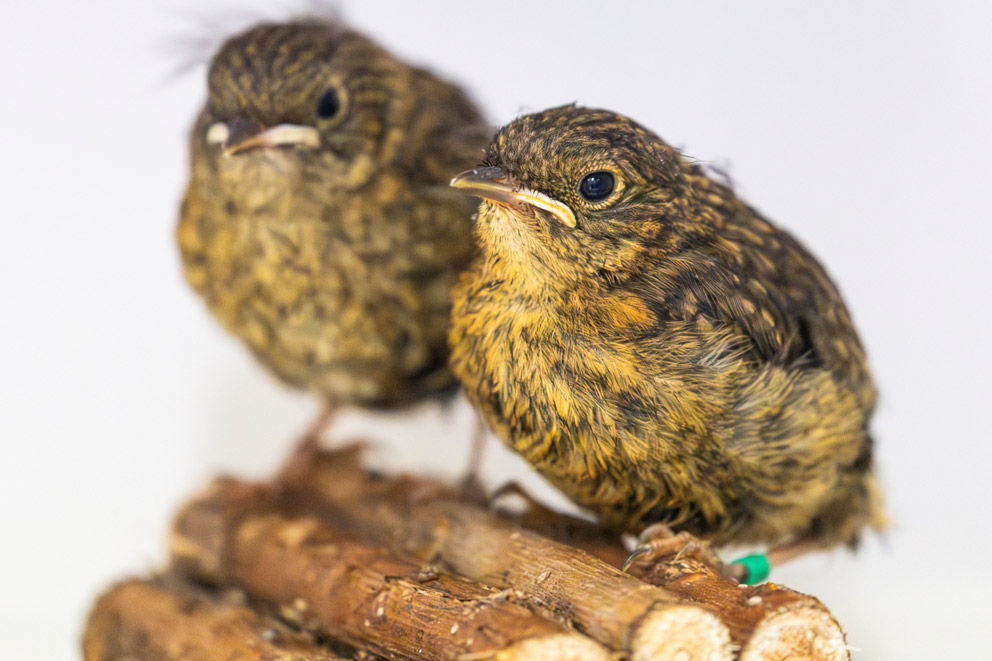- Find a Pet
- Advice and Welfare
- Ways to Give
- Get Involved
- What We Do
- Search
- My RSPCA
- Report a concern
- Gift in Wills
-
Colour modeVivid Calm
- Home
- Advice and welfare
- Wildlife
- Birds
- Baby birds
Found a baby bird out of a nest
During the spring and summer months, it's very common to find baby birds on the ground. Birds take far better care of their babies than humans can, so if you find a baby bird, keep your pets away and follow our advice below.

Bird flu warning
Due to the Avian Influenza Prevention Zone (AIPZ) currently in place across the UK, some baby birds can't be handled. Please follow our bird flu and baby bird advice to check which species can be handled and what to do.
If the baby bird has no feathers
Nestlings are baby birds that have no feathers, or only a few. Nestlings won't survive long outside the protection of the nest, and where possible nestlings should be re-nested and left in the wild.
If you can't see a nest in the surrounding trees, or it's fallen down or been damaged, then you can make a replacement nest to put the nestling back into. This could be as simple as a basket or plant pot with some nesting material inside, securely attached to the nearest tree.
If the bird is injured, the quickest way to help is to contact your local wildlife rescue centre or vet.

If the baby bird has feathers
Fledglings nearly have all their feathers and leave the nest just before they can fly, so it's normal to see them on the ground. Keep your pets away from them, leave the fledgling alone and monitor it, as the parents are usually nearby and feeding the bird.
Even if you have already confined a healthy fledgling, you may still be able to return them to their parents. If they're in immediate danger, place them in a sheltered spot a short distance away.

Not all birds nest in trees
Not all bird species nest in trees or remain in the nest until they're a fledgling. Follow the links below to find out more about specific species of birds and how they nest.
How to protect a baby bird from danger
If the baby bird is out of its nest and in immediate danger, then you can pick it up (using gloves) and move it a very short distance to somewhere safe - no more than a few metres away.
Look for somewhere with shelter for the bird, and where the parents will still be able to find them easily.
How to tell if a baby bird has been orphaned
You should only take baby birds into captivity as a last resort if
- They're sick or injured
- You know for sure that the parents are dead
- You've continuously monitored from a distance for more than two hours and the parents haven't returned
In these cases, you should contact your local wildlife rehabilitation centre or vet as soon as possible.
What to do if a baby bird is visibly injured
An injured baby bird will need specialist care and rehabilitation to survive, so the best thing to do is to contact a local wildlife rehabilitation centre or a vet as soon as possible.
You may be asked to take the bird to the centre yourself. If you need to handle the bird, follow our advice about handling and boxing it up.
If the wildlife centre or vets are unavailable, or you're unable to transport the baby bird, please contact us.
Video: How to help a bird
Please enter a valid video URL.
The URL can point to any Facebook, Twitch, Vimeo or Youtube video.
Leave eggs and nests alone
Birds are at their most vulnerable when nesting. Any disturbance could kill or hurt the wild birds and their young - or cause them to abandon their nests, eggs and young.
Birds' eggs are also legally protected, so don't touch or move them even if you want to help the birds, as you might be breaking the law.
If you've found a nest that you think needs to be moved, check if you're legally able to.





